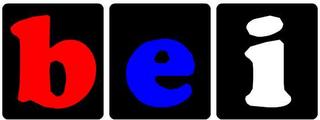Student/Training Visas
Student/Training Visas
There are many options available for those people who wish to enter the United States for vocational training purposes or academic study in furtherance of a degree. Most student visas allow for the individual to study or train in the United States with little restriction. Typically, at the completion of these studies the individual can then change status and either work in the United States, or remain in the United States through a familial relationship. However, in the case of J-1 and J-2 visa holders the individual is often required to return to their home country for a two-year period upon completion of their training in the United States. This requirement is based upon agreements between the United States Government and the individual’s home government, as well as an agreement between the individual and the United States Government. This requirement often can be waived which will allow the individual to remain in the United States without returning home for a two-year period.
The categories of student and trainings visa are as follows:
Visa Description and Time Limit\ Extensions
F Student at an academic or language training program. Duration of Status
J Exchange Visitor. Varies depending on program.
M Student in vocational or other recognized non-academic program. Varies depending on program.
Q-1 Participant in an international cultural exchange program. 15 months max.
Q-2 Irish cultural and exchange program participant. 36 months max.
J-1 Waiver ___________
For those individuals who entered the United States on a J-1 training visa, you may be subject to the “two-year home country requirement”. This requirement bars you from changing status in the United States, other than an "O" visa holder, until such time that you have returned to your home country for a period of at least two years. Fortunately, this requirement is not absolute and can be waived.
Not all recipients of a J-1 training visa are subject to the two-year home country requirement. Typically, a notation will be made on the individuals IAP-66 form when they receive the J visa as to whether or not they are subject to the two-year home country requirement. However, this notation is not binding and should only be used as a primary indication.
The two-year home country requirement applies in the following situations:
If the individuals participation in the J-1 program was financed, in whole or in part, by any government agency, whether it be the individual's home country or the United States government.
If at the time the individual obtained the J visa his/her home country had listed the individual’s field or skill as one that is in need in the home country. This is determined by the United States Department of State’s skills list.
If the individual received clinical graduate medical training or education as part of their educational program while in the United States.
The process of removing the two-year home country requirement is a complex task that requires applications with the United States Department of State, the Immigration and Naturalization Service, as well as multiple Interested Government Agency’s. Waiver of the two-year home country requirement can be accomplished through the following means:
“No Objection Letter”
Should the individual’s home country agree to waive the two–year home country requirement, and if the United States Department of State agrees, this can be the basis of an application with the Immigration and Naturalization Service. This avenue is generally not available for physicians who have received clinical graduate medical training or education in the United States as a J-1 visa holder; although in certain circumstances a modification to this strategy may be available to physicians.
Hardship or Persecution Waiver
If the individual can show that by returning to his/her home country it would cause extreme hardship to his/her United States Citizen spouse or child, or if it can be shown that should the individual be forced to return to his/her home that he/she would be subject to persecution based on race, religion, or political opinion, then the two-year home country that requirement can be waived.
Interested Government Agency
If an agency of the United States Government agrees to sponsor an application for a waiver of the two year home country requirement on behalf of the J–1 visa holder, the two year home country requirement can be waived. This is often the best option for physicians.
Conrad State 30 Program:
The Federal Government allows each state to grant J-1 waivers to thirty qualified physicians each year, provided that these physicians agree to work in a federally designated medically underserved area for a period of three years.
Impossibility of Performance
If the individual can prove that he/she is unable to return to his/her home country because the government of the home country refuses to allow him/her entrance into the country, then the two-year home country requirement can be waived.



<< Home